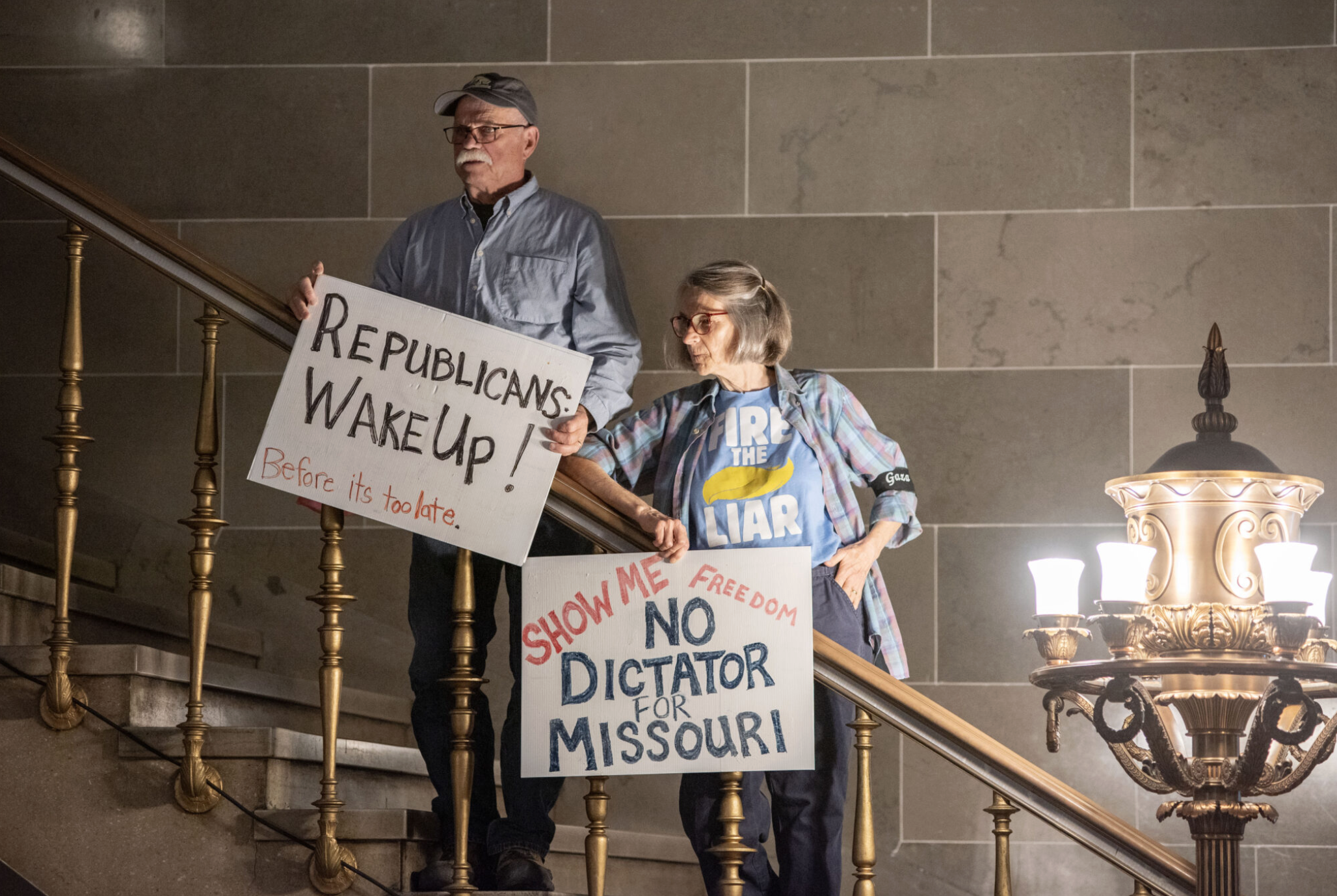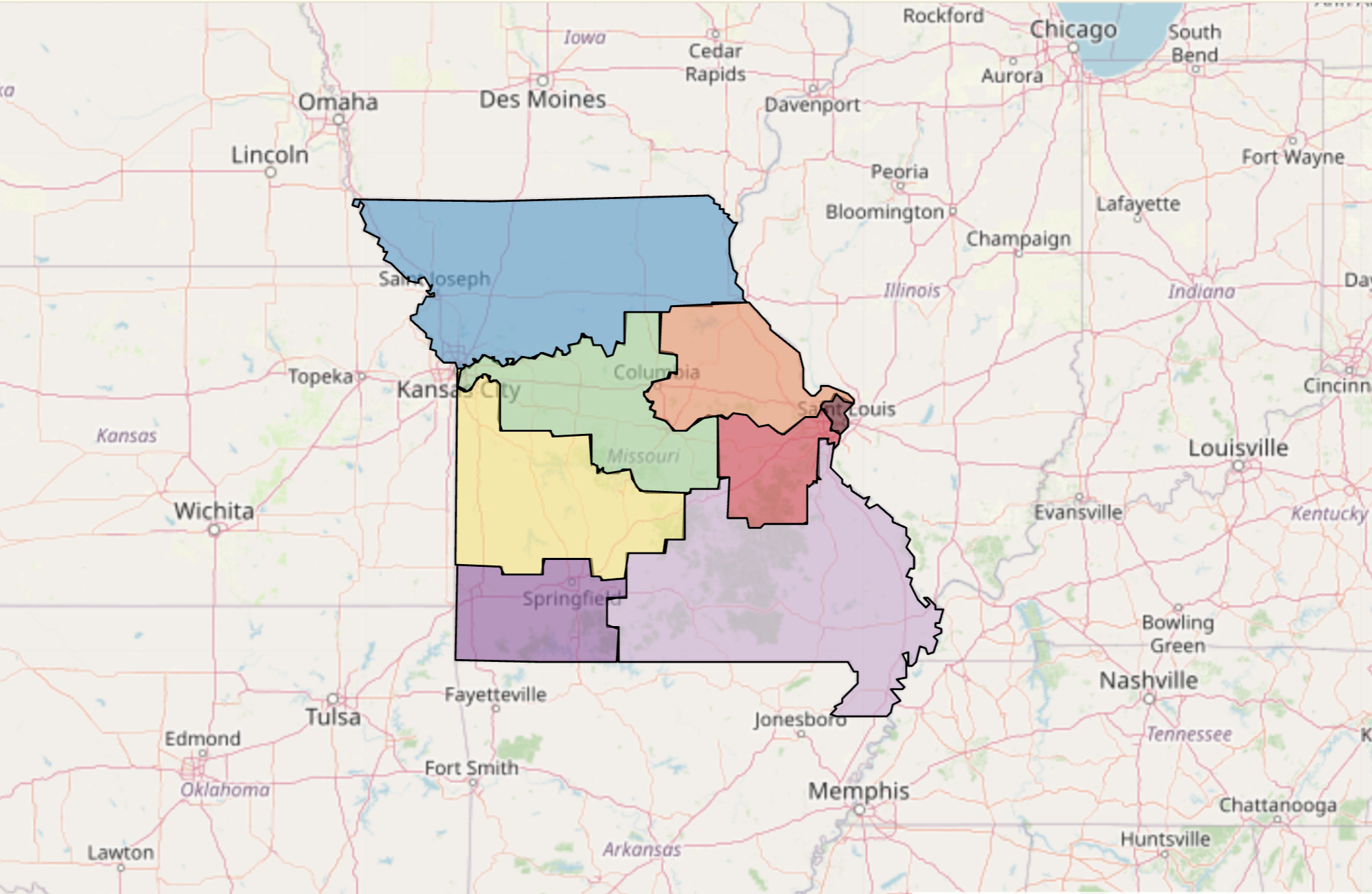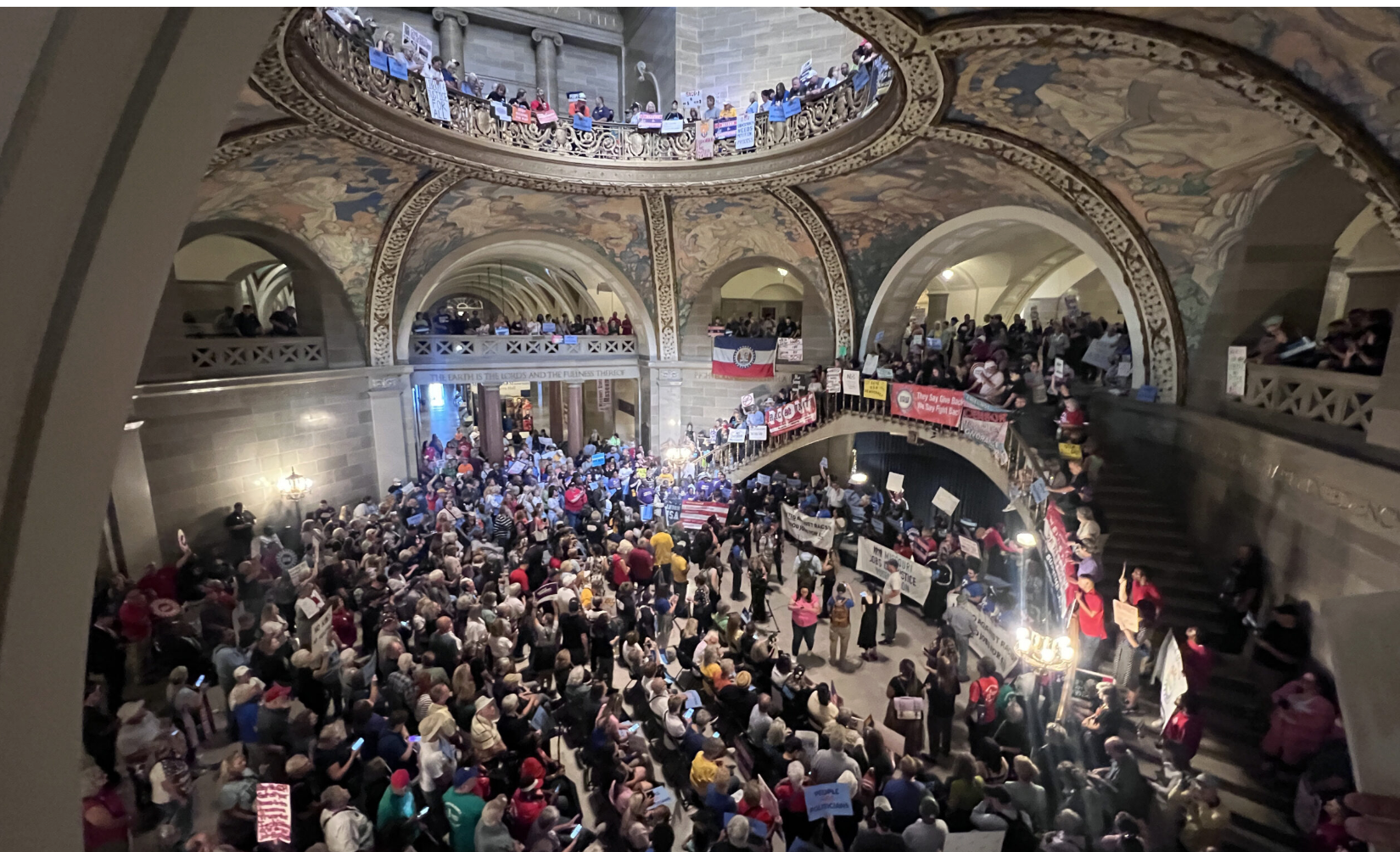
By: Jason Hancock
Missouri Independent
Almost immediately after Missouri Republicans shut down debate last week to pass a newly gerrymandered congressional map, a pair of lawsuits were filed challenging its constitutionality.
Meanwhile, a referendum campaign seeking to repeal the map got a major financial boost over the weekend — a $500,000 donation from a national dark-money organization.
And a lawsuit filed last week by the Missouri NAACP claiming the governor illegally called lawmakers into a special legislative session to pass the map is scheduled for a hearing Monday afternoon in Cole County Court.
The all-out assault on the congressional map in the courtroom and ballot box is the next phase of the ugly partisan war that’s raged in Missouri for weeks — with Republicans determined to follow President Trump’s instructions to create a new GOP district before the 2026 midterms and Democrats denouncing the move as an unconstitutional power grab.

Both of the lawsuits filed after the map passed Friday — one in Jackson County and the other in Cole County — argue the Missouri Constitution prohibits the legislature from redrawing congressional districts more than once a decade.
“In a blatant illegal and unconstitutional power grab, the governor bowed to the whims of Washington while sacrificing representation in both urban and rural populations of Missouri,” said Gillian Wilcox, director of litigation for the ACLU of Missouri, which is representing plaintiffs in the Jackson County lawsuit.
Missouri has eight congressional districts, with six currently represented by Republicans.
The 5th District, based in Kansas City and represented by Democratic U.S. Rep. Emanuel Cleaver since 2005, is carved up under the new map with portions attached to the 4th and 6th Districts. Heavily Republican areas stretching along the Missouri River to Boone County would be added to the remaining Kansas City portions.
The intended result is a map where Republicans hold seven of the state’s eight seats.
Revising congressional district lines occurs every 10 years, after the allocation of seats following the federal census. The Missouri Constitution mandates it but is silent on whether lawmakers have the power to do so at other times, and the lawsuits challenging the map point to the lack of any mention of mid-decade redistricting as evidence that it is not permitted.
Republican lawmakers dismissed these arguments as they were approving the maps, saying this type of interpretation of the constitution would leave lawmakers unable to make any adjustments in between censuses, even if ordered by a court.
The last time lines were redrawn between censuses in Missouri was in the 1960s, following the 1964 U.S. Supreme Court decision that districts had to be drawn as closely as possible in population to preserve equal representation, known as the one person, one vote decision.
Referendum
A group called People NOT Politicians Missouri attempted to file a citizen referendum on Friday shortly after the new map cleared the state Senate. The goal is to put the map on the 2026 ballot for voters to decide whether or not to implement it.
But the group’s attempt to get its campaign started — they must collect 100,000 signatures in 90 days to put the map on the November 2026 ballot — ran into an administrative hurdle when the secretary of state’s office refused to certify it until the governor signs the bill into law.
Kehoe has 45 days to sign the bill.
Over the weekend, however, the secretary of state’s office slightly backtracked, sending a letter to People NOT Politicians Missouri explaining that it would begin the process of certifying the referendum petition sample sheet that would be used to gather signatures.
The office has sent a copy to the Missouri Attorney General’s Office for legal review and the State Auditor for preparation of a cost estimate.
“Only after the Attorney General has rendered an opinion on legal sufficiency and the secretary of state has reviewed those comments can this office make a final determination regarding the approval or rejection of the form of the petition,” the letter states.
The secretary of state, the letter added, “has not yet made a final determination whether your referendum petition may be accepted for processing or circulation.”

In 2019, the secretary of state’s office used procedural maneuvers to derail a referendum campaign that sought to overturn newly-passed restrictions on abortion. The move sparked a lawsuit, and in 2022 the Missouri Supreme Court ruled the laws the secretary of state used to obstruct the citizen-initiated referendum process were unconstitutional.
A spokeswoman for Secretary of State Denny Hoskins agreed on Friday that the 2022 court ruling means signatures can be counted as valid even if they are collected prior to the certification of a ballot title, “since otherwise the full process could eat up over half of their available gathering time.”
On Saturday, the political action committee supporting the referendum received a $500,000 check from Global Impact Social Welfare Fund, a 501c4 nonprofit that is not required to disclose its donors.
Based in Washington, D.C., Global Impact Social Welfare Fund is a liberal advocacy organization that has spent millions in support of ballot initiatives across the country. Last year, the group donated more than $1 million to the successful campaign to enshrine abortion rights in Missouri’s constitution.
In addition to the gerrymandered congressional map, Republican lawmakers also approved a proposal to require any changes to the state constitution through the initiative petition process to be approved by a majority of voters statewide and in each of the state’s eight congressional districts.
Based on last year’s election results, that change would mean as few as 5% of voters could defeat any ballot measure. The new requirements would only apply to citizen-led initiative petitions, not amendments placed on the ballot by the legislature.
GOP lawmakers pointed specifically at last year’s abortion amendment — and the campaign contributions of out-of-state advocacy organizations like Global Impact Social Welfare Fund — to justify the change.
A referendum was last deployed in Missouri seven years ago, when labor unions collected 300,000 signatures in 90 days — more than three times the amount required — to put a question on the statewide ballot repealing a GOP-backed right-to-work law.
The repeal push was ultimately successful, with 67% of voters rejecting the right-to-work law. In fact, of the 27 times a referendum has been placed on the ballot, voters have rejected actions by the General Assembly all but twice.
The AFL-CIO, which led the 2018 referendum campaign, has indicated it will support the push to put the congressional map on the ballot next year. Over the weekend, the United Food and Commercial Workers International Union donated $50,000 to People NOT Politicians Missouri for the campaign.
Elsa Rainey, a spokeswoman for People NOT Politicians Missouri, called Missouri’s new map “an unconstitutional power grab” and a “blatant attempt to rig the 2026 elections before a single vote is cast.”
“It violates Missouri law,” she said, “slices apart communities and strikes at the core of our democratic system.”








